Departures Podcast featuring Anna Aruntunyan, author of ‘Hybrid Warriors: Proxies, Freelancers and Moscow’s Struggle for Ukraine’

When we talk about the gig economy, we usually are referring to rideshare drivers, errand runners, and all sorts of service industry freelancers. But we rarely think about the freelancers and non-state actors which take part in wars and armed conflict, doing the sometimes violent fighting and often disruptive hacking, as playing a very important […]
Departures Podcast featuring Raffaello Pantucci, author of ‘Sinostan: China’s Inadvertent Empire’
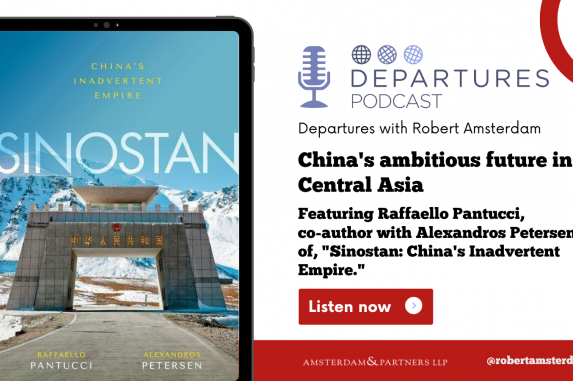
Though we often view China’s increasingly activist foreign policy in its trade wars, territorial disputes, and frequent collisions with Western states, less attention is paid to its gradual and quiet expansion of influence in the ‘Stans of Central Asia. But it is here, among the populations of Kazakhstan, the Kyrgyz Republic, Tajikistan, Turkmenistan, and Uzbekistan […]
Departures Podcast featuring Jeremy L. Wallace, author of ‘Seeking Truth and Hiding Facts: Information, Ideology, and Authoritarianism in China’
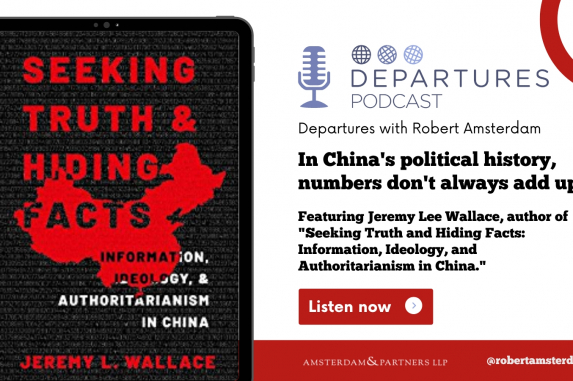
China’s recent political history has taken place at breakneck speed. A historic economic transformation, the consolidation of centralized power not seen since Mao, and the eager but then later truculent participation in the global economy. How do we measure this progress and its costs, and how do we measure its shortcomings? The numbers matter, and […]
Departures Podcast featuring Danilo Mandić, author of ‘Gangsters and Other Statesmen’
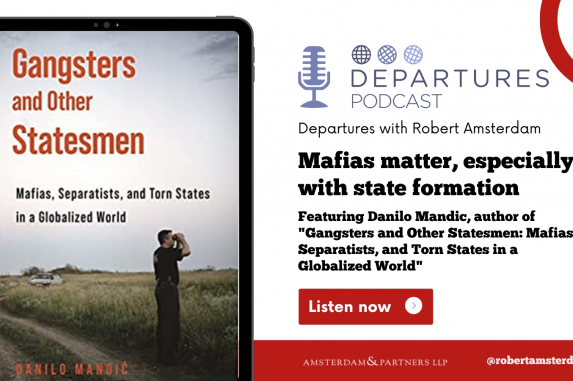
When we think of networks of organized crime, we tend to place them in their own category, occupying an “underworld” of its own rules separate from the norms and laws that guide our states operate in societies. In his new book, “Gangsters and Other Statesmen: Mafias, Separatists, and Torn States in a Globalized World,” Danilo […]
Departures Podcast with Peer Schouten, author of ‘Roadblock Politics: The Origins of Conflict and Violence in Central Africa’
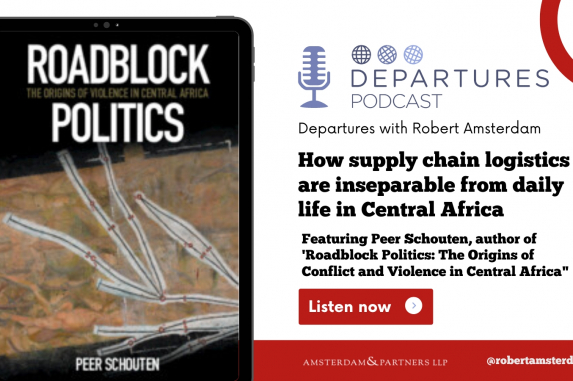
Throughout the global supply chain, there are chokepoints where states and stakeholders exploit an opportunity to extract rents – and this includes nearby the origin of critical minerals, diamonds, and other natural resources in relatively ungoverned areas of Central Africa. Peer Schouten, who is a senior researcher at the Danish Institute for International Studies and […]
Departures Podcast with Anand Giridharadas, author of ‘The Persuaders: At the Front Lines of the Fight for Hearts, Minds, and Democracy’

Every day in the media we are told that the United States is irreparably polarized. That lines have been drawn, political opinions have been weaponized into tribal identities, and that apart from an ever-slimming section of undecideds, we are locked into this dreadful stalemate. That’s why it’s so refreshing to read a more optimistic take […]
Departures Podcast with Christoph Vogel, author of ‘Conflict Minerals, Inc. – War, Profit and White Saviourism in Eastern Congo’

With the global economy going through an unprecedented energy transition away from fossil fuels, demand is exploding for critical minerals essential for batteries and electrification, such as copper, cobalt, lithium, and rare earths. Accompanying this demand is a new geopolitical playing field, most commonly dominated by China, taking place in the Democratic Republic of Congo. […]
Join us for a live podcast event featuring David Satter, Nov. 15 in London
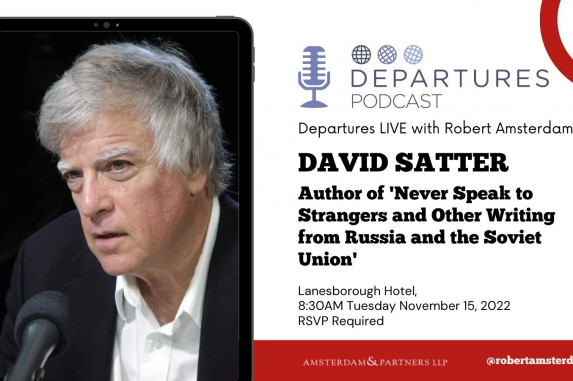
Amsterdam & Partners LLP is pleased to host a special live podcast event featuring veteran Russia correspondent and author David Satter to be held on November 15 at the Lanesborough Hotel in London. David Satter is a leading journalist and commentator on Russia and the former Soviet Union. David has had a distinguished career in […]
Departures Podcast with Stefan Aust and Adrian Geiges, authors of ‘Xi Jinping: The Most Powerful Man in the World’
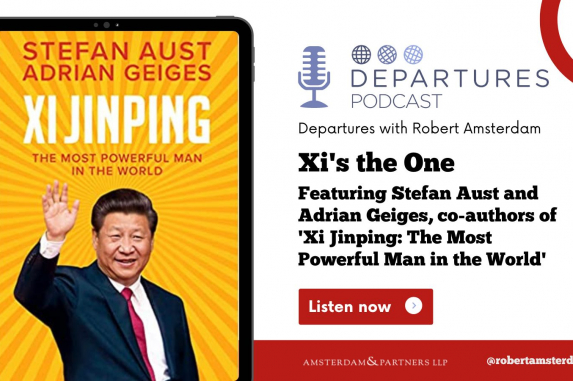
As Xi Jinping concludes the 20th Party Congress and becomes the first Chinese leader to secure a third term, there is arguably no one in a position quite so powerful and influential in global politics. But who is Xi Jinping and what does he really want? This is the question tackled by two veteran German […]
Departures Podcast featuring Frank Dikötter, author of ‘China After Mao: The Rise of a Superpower’
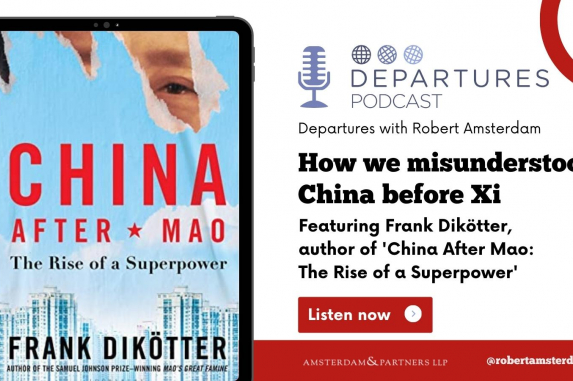
Is Xi Jinping the most powerful political figure in the world? Or are his efforts to secure tighter control at home and project influence abroad more a sign of underlying weakness? As Xi sails toward an unprecedented third term at the 19th Party Congress in China, Departures is pleased to feature special guest author Frank […]














